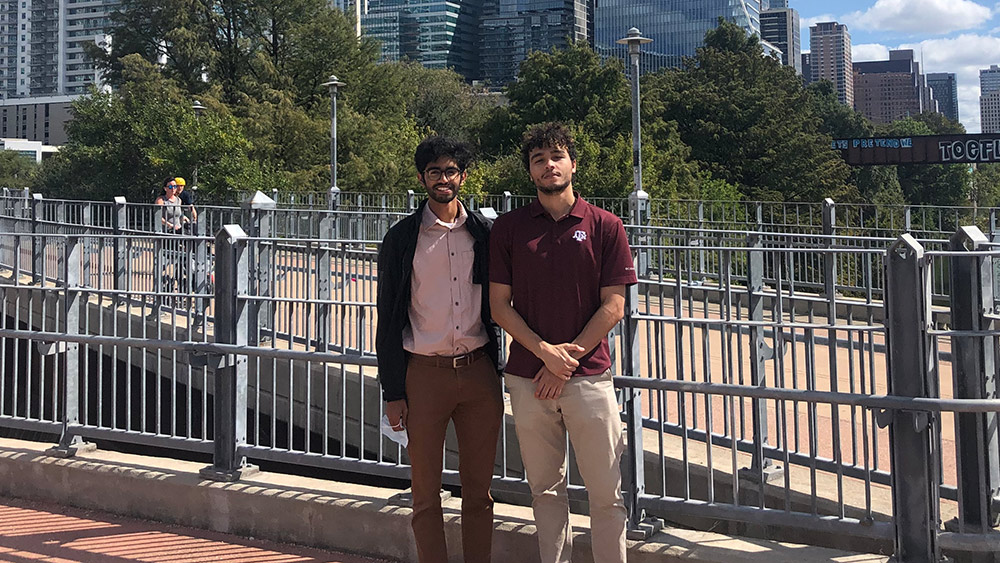
Weather-related delays can cause significant challenges and financial losses to the road-construction process. Two undergraduate mechanical engineering students seek to reduce the impact of these delays by developing a solution with the support of the National Science Foundation’s (NSF) Innovation Corps (I-Corps) program.
Pepito Thelly and Rami Ayari, both seniors in the J. Mike Walker '66 Department of Mechanical Engineering at Texas A&M University, interviewed 30 industry stakeholders over a six-week period to learn more about the challenges to road construction presented by weather delays as part of their I-Corps experience.
The experience was impactful as it gave them the opportunity to build relationships in a professional environment as they worked toward furthering their project.
"Through this program, we were able to further develop our entrepreneurial and professional skills," Thelly said. "We became much more comfortable speaking with industry experts, building a business model and managing a project budget."
Ayari said getting to network and interact with industry stakeholders was an invaluable experience which, in addition to the feedback they received on their idea, proved to be a benefit to their personal development.
The project itself benefitted greatly from the results of the industry stakeholder interviews too, refocusing Thelly and Ayari's approach to the project in a different and, ultimately, more impactful direction. The duo is now focused on pursuing a method of keeping construction moving in instances where progress would otherwise be inhibited by weather delays.
"The most important thing we learned was the importance of going out and actually speaking to people affected by this problem," Thelly said. "At the end of the day we can sit around a table discussing many solutions to many problems, but without actually getting input from individuals directly affected by those problems, we won't even know if we're solving the right problems."
Having learned more from stakeholders who deal with the effects of weather-related delays to road construction, Ayari said he is surprised that a widespread or effective solution has not yet been identified given the loss in both money and time for stakeholders.
"I believe that this issue is an all-too-common problem faced by pedestrians, drivers, contractors, workers and project owners alike," Ayari said. "Anyone who has driven before has faced the ramifications of delayed road construction and the inconveniences it causes."
The duo is using the funding they have received through the NSF I-Corps program to develop a prototype they can use to begin testing the effectiveness of their design. If successful, they hope it can reduce the costs associated with weather delays in road construction. As they continue their work, they plan to apply to the national level of the I-Corps program where they hope to receive even greater support in making their vision a reality.
Ayari and Thelly are grateful for all the support and feedback they have received on the project, including industry stakeholders and faculty at Texas A&M.
"We would like to thank our mentor Rodney Boehm for continued mentorship on our project, and also Magdalini Lagoudas and Dr. Saurabh Biswas for providing valuable project feedback," Thelly said. "Texas A&M has great resources and we would like to encourage anyone who thinks that they have a promising idea to pursue it using these resources."
With graduation approaching, both Thelly and Ayari plan to continue their mechanical engineering education by attending graduate school and continuing to develop their project.
“The construction industry has had many substantial innovations throughout history and we are thankful and excited to have gotten this opportunity to hopefully make our impact on it,” Thelly said.